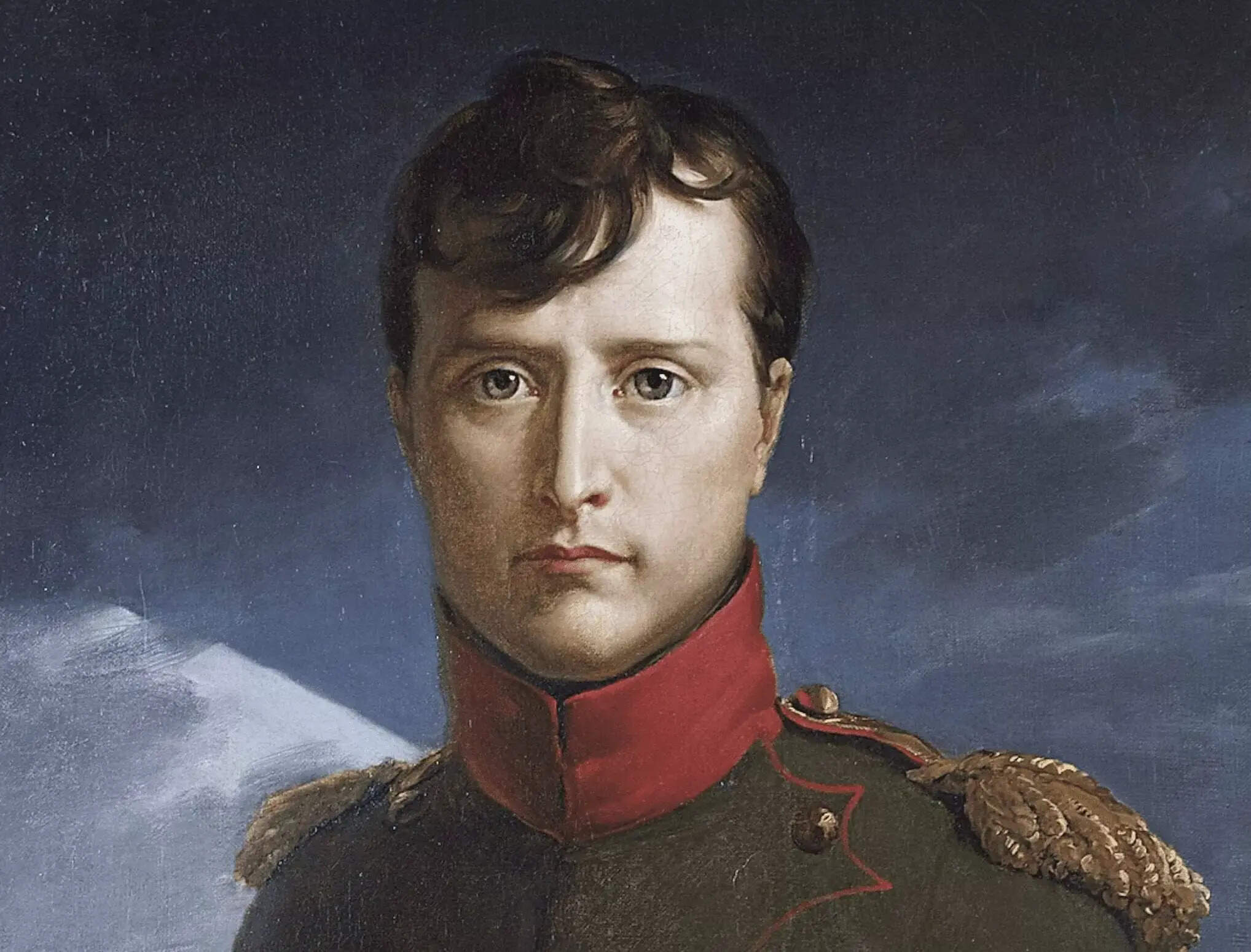
Who was Napoleon Bonaparte, and why does he remain a significant figure in history? Napoleon Bonaparte, born on August 15, 1769, in Corsica, rose from modest beginnings to become one of history's most influential leaders. Known for his military genius, he transformed the French army and led it to numerous victories across Europe. Beyond the battlefield, Napoleon's impact extended to politics, law, and society. He introduced the Napoleonic Code, which reformed legal systems and influenced many countries. His life was marked by dramatic highs and lows, from becoming Emperor of France to his eventual exile. Napoleon's legacy continues to shape modern Europe and the world.
Key Takeaways:
- Napoleon Bonaparte's early life and education shaped his rise to power, marked by military success and political influence during the French Revolution. His legacy includes significant reforms and enduring impact on Europe.
- Despite his average height and personal life, Napoleon's military conquests, political strategies, and enduring legacy left a lasting mark on French institutions and Western Europe, influencing politics, law, and military strategy to this day.
Early Life and Background
Napoleon Bonaparte's journey from a Corsican child to the Emperor of France is filled with intriguing details. Let's explore his early life and family background.
-
Birthplace and Early Life: Born on August 15, 1769, in Ajaccio, Corsica, Napoleon came from a family of ancient Tuscan nobility that had settled on the island in the 16th century.
-
Family Background: His father, Carlo Buonaparte, was a lawyer who married Letizia Ramolino when she was just 14. Together, they had eight children, with Napoleon being the fourth.
-
Corsican Nationalism: Despite his later achievements in France, Napoleon always considered himself a Corsican by birth and heritage, often feeling like a foreigner in France.
Education and Military Training
Napoleon's education and early military training laid the foundation for his future successes. His academic journey and early career are worth noting.
-
Education: He attended three schools: briefly at Autun, five years at the military college of Brienne, and one year at the military academy in Paris, graduating in 1785, ranking 42nd out of 58.
-
Military Training: Napoleon's formal military training began when he was made second lieutenant of artillery in the regiment of La Fère. He continued to educate himself by studying strategy and tactics.
-
Corsican Roots: His love for Corsica was evident in his writings, especially in Lettres sur la Corse (“Letters on Corsica”), where he expressed deep feelings for his native island.
Rise to Power
Napoleon's rise to power was swift and marked by significant events during the French Revolution and beyond.
-
Jacobin Affiliation: As a member of the Jacobin Club, a radical political group during the French Revolution, Napoleon's early career and political views were shaped significantly.
-
The French Revolution: He played a key role in the French Revolution, advocating for political change without pushing for radical social reforms.
-
Military Rise: By 1796, Napoleon was commander of the French army, leading successful campaigns, including the conquest of Ottoman-ruled Egypt in 1798 to disrupt British trade routes with India.
Key Battles and Campaigns
Napoleon's military prowess was demonstrated in several key battles and campaigns that expanded his influence and territories.
-
Battle of the Nile: In 1798, Napoleon's forces clashed with the British Royal Navy at the Battle of the Nile. Despite his defeat, it was a significant part of the wider French Revolutionary Wars.
-
First Consul: Returning to France as a heroic leader in 1799, Napoleon became the country’s first consul and later Emperor in 1804, marking the start of the Napoleonic Empire.
-
Napoleonic Code: He sponsored the Napoleonic Code, a comprehensive set of laws that reformed the French legal system and influenced later civil-law codes.
-
Concordat with the Papacy: Napoleon established a long-lasting Concordat with the papacy, reorganizing the relationship between the French state and the Catholic Church.
-
Military Reforms: He revolutionized military organization and training, introducing the "battalion column" concept, transforming the French army into a highly disciplined force.
Egyptian Expedition and Discoveries
Napoleon's expedition to Egypt was not just a military campaign but also a significant cultural and scientific endeavor.
-
Egyptian Expedition: During the expedition, Napoleon brought along 150 savants—scientists, engineers, and scholars—to study Egypt's topography, environment, culture, and history.
-
Rosetta Stone: The Rosetta Stone, discovered by Captain Pierre François-Xavier Bouchard, was a significant find during the expedition, helping scholars decode ancient Egyptian hieroglyphs.
Political and Economic Strategies
Napoleon's political and economic strategies were crucial in shaping his empire and maintaining control over Europe.
-
Peace of Amiens: Signed in 1802, the Peace of Amiens marked the end of the French Revolutionary War but collapsed in 1803 due to disputes between Britain and France.
-
Continental Blockade: Napoleon imposed the Continental Blockade to stop British trade in Europe, leading to a prolonged economic conflict with Britain.
-
Invasion Plans: In 1804, he planned an ambitious invasion of England, stationing 150,000 men and 2,000 vessels at Boulogne, but had to abandon the plan due to British naval attacks.
Major Battles and Defeats
Napoleon's military career included both significant victories and devastating defeats that shaped his legacy.
-
Battle of Trafalgar: In 1805, the British successfully attacked the Franco-Spanish fleet at Trafalgar, marking a significant defeat for Napoleon's forces.
-
Austerlitz and Jena: His military prowess shone in victories at Austerlitz in 1805 and Jena in 1806, expanding his territories and tightening his grip on Europe.
-
Russian Campaign: The disastrous 1812 Russian campaign resulted in the loss of over 500,000 men, marking a turning point in Napoleon's fortunes.
Exile and Final Years
Napoleon's final years were marked by exile, escape attempts, and a lasting legacy that continued to influence Europe.
-
Exile to Elba: After his defeat at Leipzig in 1813, Napoleon abdicated and was exiled to Elba, only to escape in February 1815 for a final 'Hundred Days' of power.
-
Hundred Days: His return to power was short-lived, ending with his defeat at Waterloo on June 18, 1815, and subsequent exile to Saint Helena.
-
Exile on Saint Helena: Napoleon lived on Saint Helena, a volcanic island in the South Atlantic, until his death on May 5, 1821, under strict British security.
-
Escape Attempts: Several attempts were made to liberate Napoleon during his exile, including plans involving boats, balloons, and even primitive submarines, but none succeeded.
Personal Life and Legacy
Napoleon's personal life and enduring legacy continue to fascinate historians and the public alike.
-
Romance Novel: Napoleon wrote Clisson et Eugénie, a novella about his fictionalized relationship with Bernardine Eugénie Désirée Clary, though it was never published during his lifetime.
-
Language Skills: French was not his first language; he began learning it at nine and spoke with a Corsican accent throughout his life.
-
Average Height: Contrary to popular belief, Napoleon stood around 5 feet 6 inches, which was average height for a Frenchman of his time.
-
Personal Life: He married Joséphine de Beauharnais in 1796, but their marriage was childless. He divorced her in 1810 and married Marie-Louise of Austria, with whom he had a son, Napoleon II.
-
Legacy: Beyond military conquests, Napoleon reorganized education, established the Banque de France, and introduced the metric system, leaving a lasting mark on French institutions and Western Europe.
Napoleonic Wars and Historical Impact
The Napoleonic Wars and Napoleon's historical impact continue to be subjects of study and admiration.
-
Napoleonic Wars: Spanning from 1803 to 1815, these wars saw Napoleon's armies conquer much of Europe, leading to a period of French dominance.
-
British Perception: Despite his military prowess, Napoleon was not universally admired by the British, leading to his banishment to Saint Helena without ever setting foot on British soil.
-
Historical Impact: Napoleon transformed the French army, reformed the legal system, and introduced significant administrative reforms, influencing politics, law, and military strategy to this day.
-
Enduring Popularity: Despite his eventual defeat and exile, Napoleon remained a revered figure until the end of the Second Empire under his nephew Napoleon III.
Napoleon's Lasting Legacy
Napoleon Bonaparte's life was a whirlwind of military conquests, political maneuvers, and lasting reforms. Born in Corsica, he rose to become Emperor of France, leaving an indelible mark on European history. His military genius was evident in battles like Austerlitz and Jena, though his Russian campaign proved disastrous. Beyond the battlefield, his Napoleonic Code reshaped legal systems, and his educational and economic reforms had long-lasting impacts. Even in exile, his influence persisted, with escape attempts and continued fascination surrounding his life. Myths about his height and his romantic endeavors add layers to his complex persona. Napoleon's story is one of ambition, brilliance, and enduring legacy, making him a figure who continues to captivate historians and the public alike. His contributions to military strategy, law, and governance remain relevant, cementing his place as a pivotal figure in modern history.
Frequently Asked Questions
Was this page helpful?
Our commitment to delivering trustworthy and engaging content is at the heart of what we do. Each fact on our site is contributed by real users like you, bringing a wealth of diverse insights and information. To ensure the highest standards of accuracy and reliability, our dedicated editors meticulously review each submission. This process guarantees that the facts we share are not only fascinating but also credible. Trust in our commitment to quality and authenticity as you explore and learn with us.


